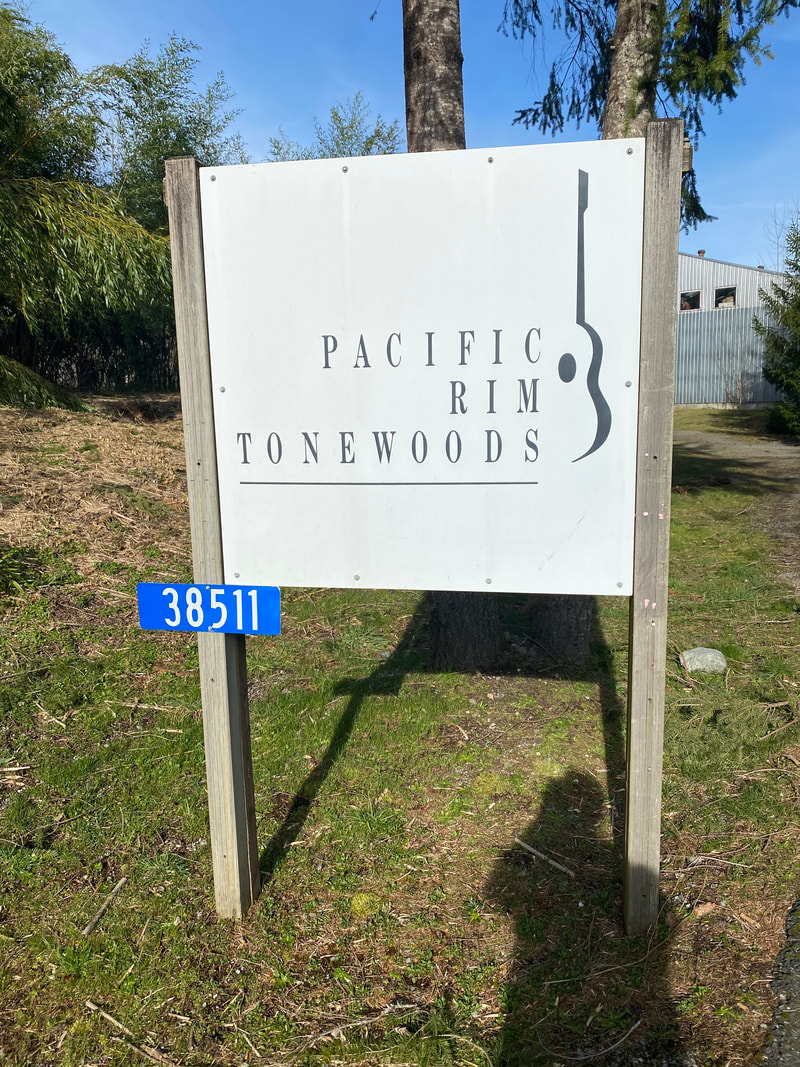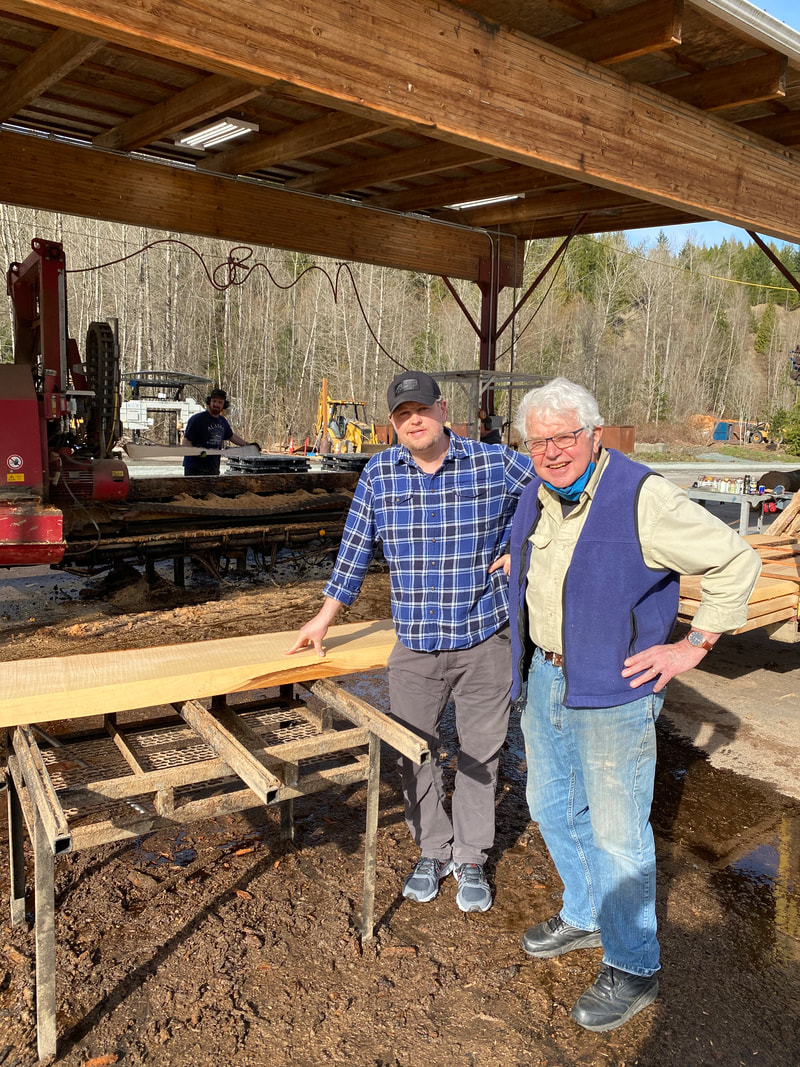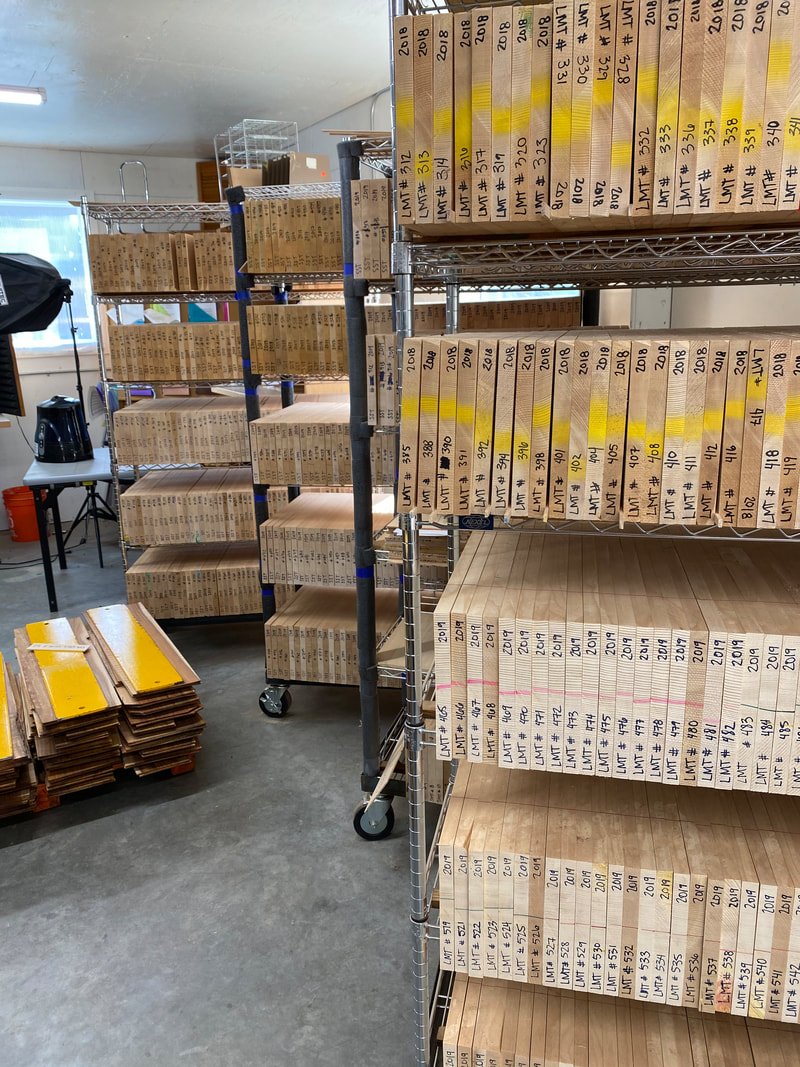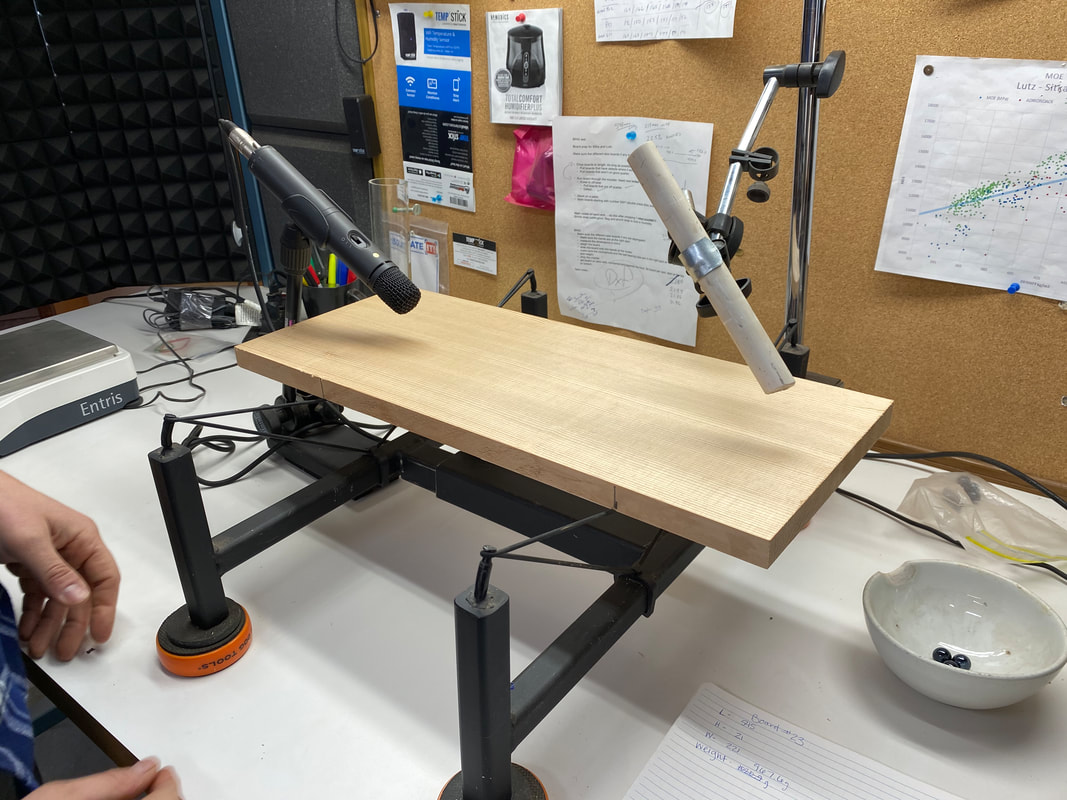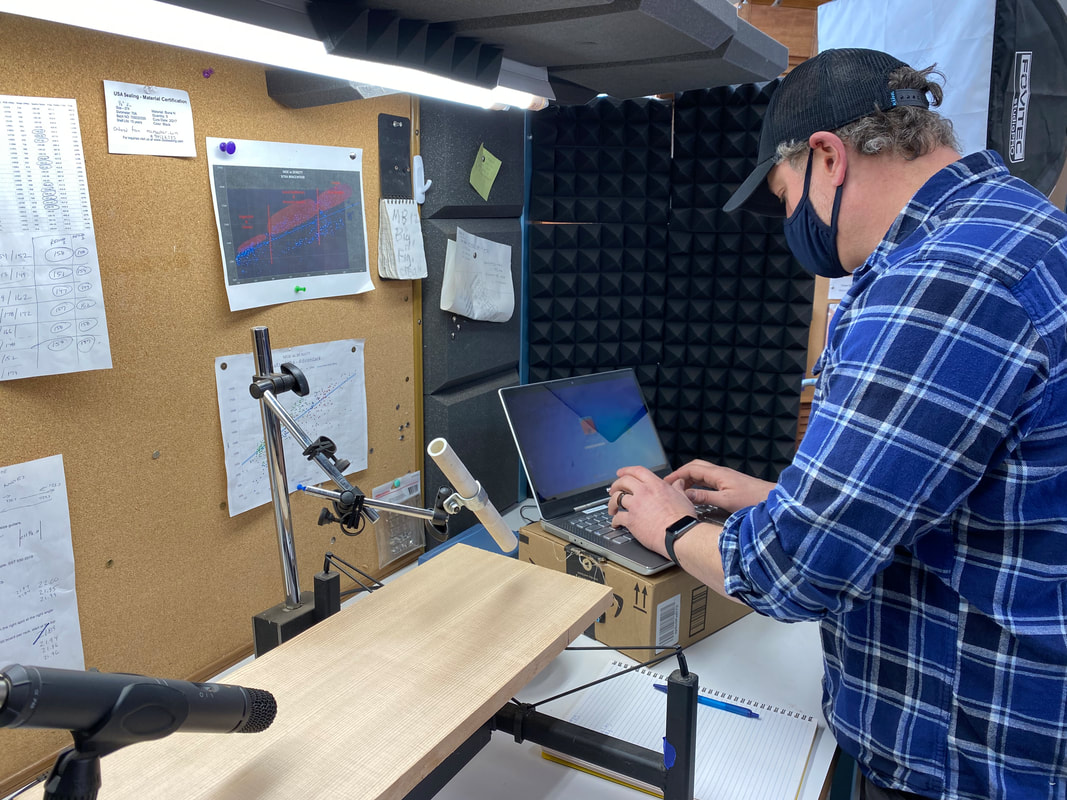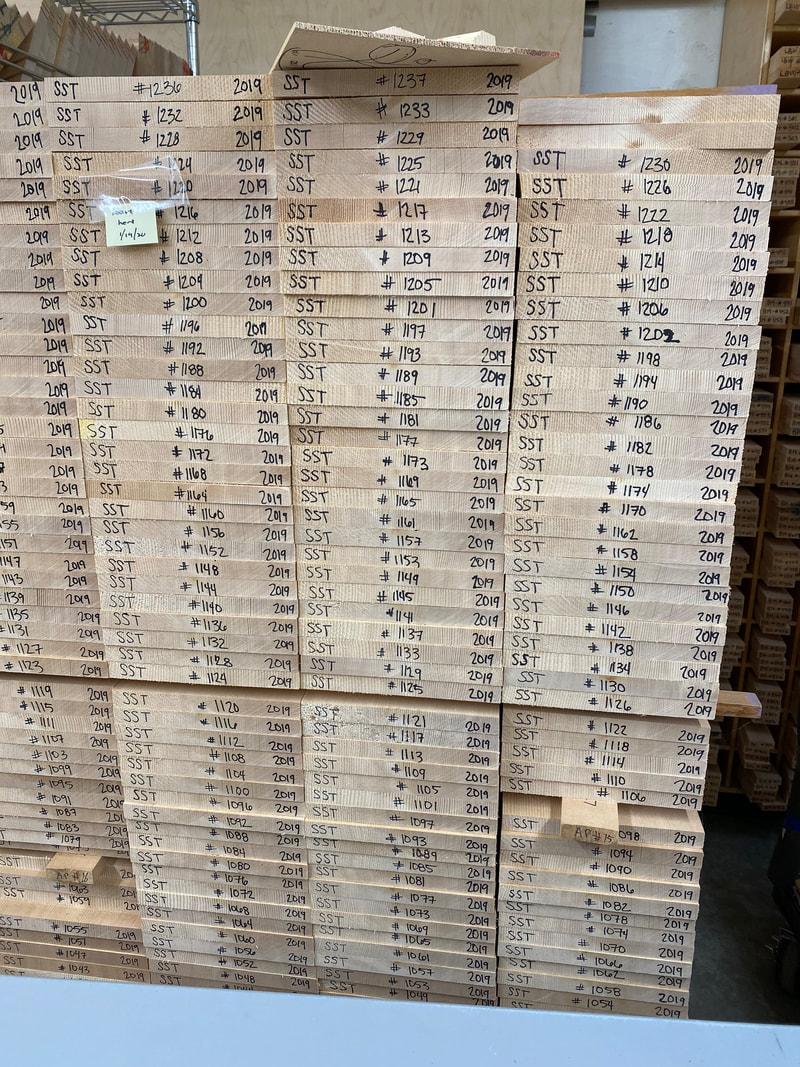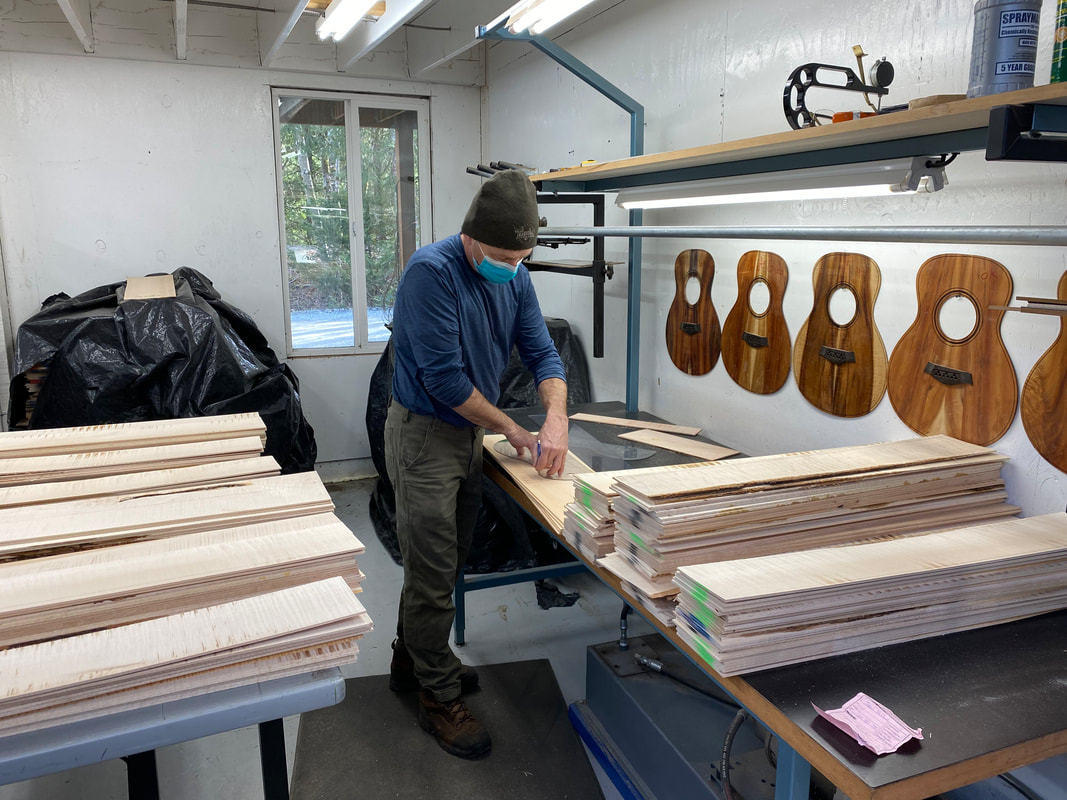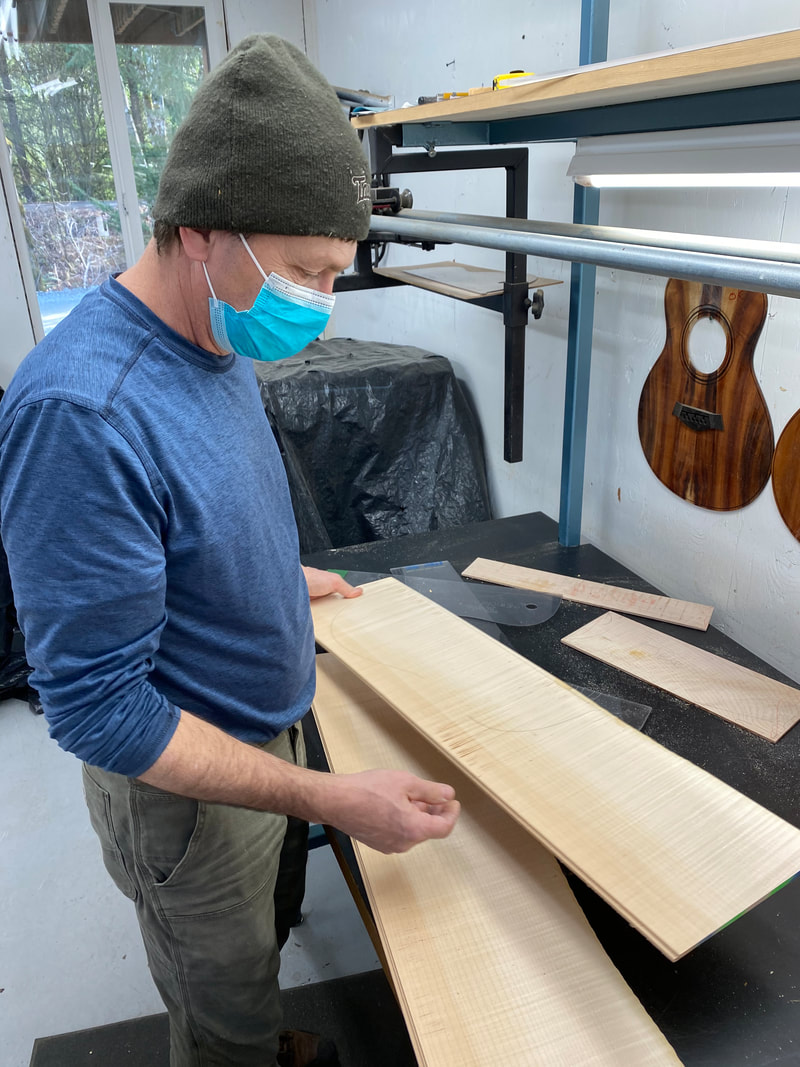Spent the morning in the workshop attaching the necks, applying french polish and making good progress, After lunch I drove up the beautiful Skagit River Valley to that wonderland of wood
I needed some binding for all of the ukuleles on order but as usual I came away with some wonderful wood I had not expected thanks to the generosity of my friends there. And as usual I came away astounded at the technical perfection and the knowledge and science displayed there.
General Manager Eric Warner and I are examining a freshly sawn slab of a Mexican Ash species that they are sawing for the new "street tree" program begun by Taylor Guitars. Taylor has contracted with a large California tree maintaince company to purchase and use street trees that are suitable for acoustic instruments. They are excited about this Ash species found in many California streets. Pacific Rim is processing the wood for Taylor.
Then Eric showed me their " Wood Library" where they test and stock soundboard wood for discriminating luthiers. Each piece has been tested for sound characteristics desired, labeled and stored here awaiting orders for wood with specific tonal qualities.
Here is the device that does the testing. A steel ball is dropped down the white tube and strikes the soundboard. The woods resonance is picked up by the microphone and reported to the computer which analyses the sonic properties of that particular piece of wood. The results are then recorded on a computer, the wood receives its identifying marks and is placed in the library,
Here Eric is waking up the computer to show me the process. I was thoroughly confused and impressed with this scientific approach to tap tuning. It is no wonder that Pacific Rim is the leader in their industry.
So if you want to build a guitar with terrific treble sound and lots of sustain they can tell you that #1078 is the wood you should use. Truly amazing!
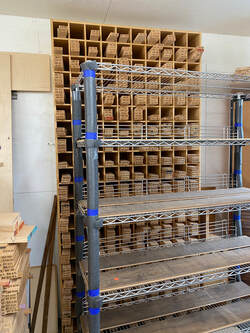
And they can even tell you what bracing material you should be using. This rack contains only bracing material that has gone through the same testing process.
Next I went to another building where Keven was determining the best use of large stacks of freshly sawn fiddleback maple. His decisions determine the fate of each set of book matched pieces. Some will work for dreadnoughts, some for parlor guitars and some only for ukuleles. those with the slightest flaw, a pinhole gap, a pitch pocket, a knot, are tossed into the scrap bin. Only the perfect pieces are kept to be dried and sold to guitar factorys.
Did I come home with some of this beautiful wood. Of course, how could I resist. I am able to cut from each piece of book matched wood, one half of a tenor back and one side. so two book matched pieces result in one tenor ukulele, all from the same tree, both with the same markings. And maple makes beautiful sounding ukuleles as well. I came home with wood for six tenors. plus lots of lovely curly Koa binding to accent them.
WHAT A BEAUTIFUL DAY
